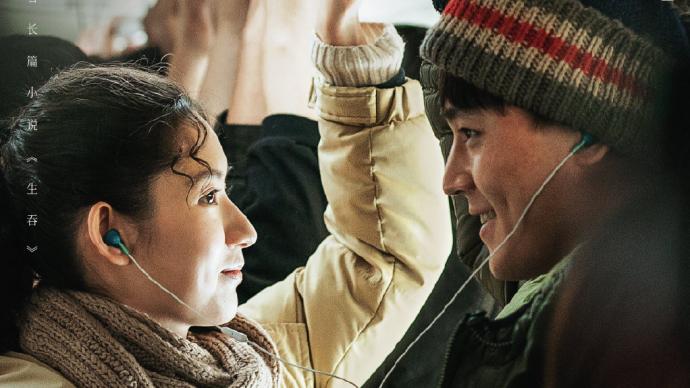
Shuang Xuetao, Ban Yu, and Zheng Zhi, the three post-80s writers in Northeast China, are now collectively known as the "Three Masters of the Northeast Renaissance" or "Three Masters of Tiexi District". Their novels have also embarked on the path of film and television adaptation. For example, Shuang Xuetao's "Assassination of the Novelist", "Moses on the Plain" and Ban Yu's "Easy Journey" were all adapted into movies; Zheng Zhi's novel "Swallowing" was adapted into a 16-episode suspenseful short drama "The Coward" , is currently on air.
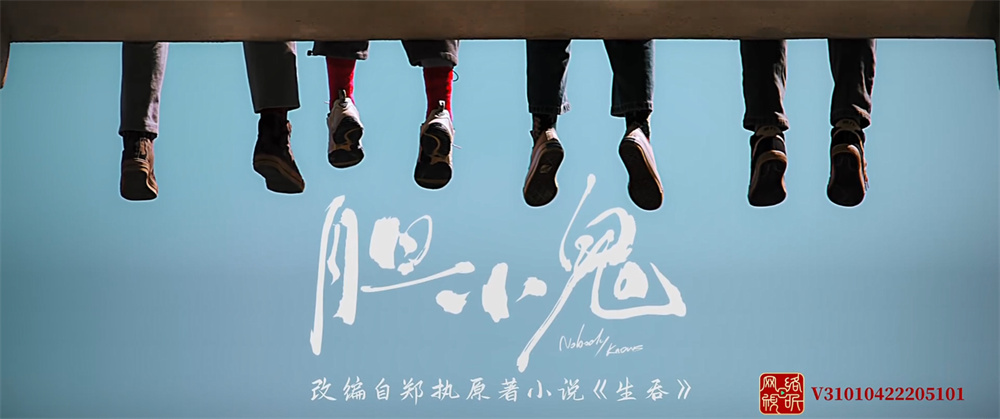
Zheng Zhi's "Swallowing Raw" in 2017 is also a "loser narrative". The novel adopts a two-line narrative, one unfolds from the point of view of police officer Feng Guojin (played by Wang Yanhui in the drama version), who investigates a "rape and murder case in a ghost house" that happened ten years ago. The girl who was killed is the heroine of the novel, Huang Shu ( The drama version is played by Wang Yuwen); the other is a youth narrative from bright to cruel, with "I" - Wang Di (played by Hou Wenyuan in the drama version) in the first person, recalling the high school days, "I", Qin Li (played by the drama version). How did the beautiful friendship of several people, played by Ou Hao (played by Ou Hao), Huang Shu and Feng Xuejiao (played by Zhou still in the play version), go to disillusionment.
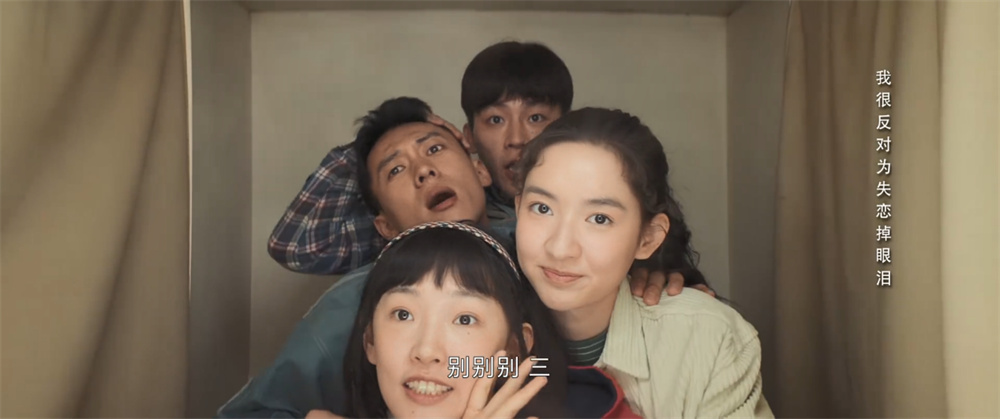
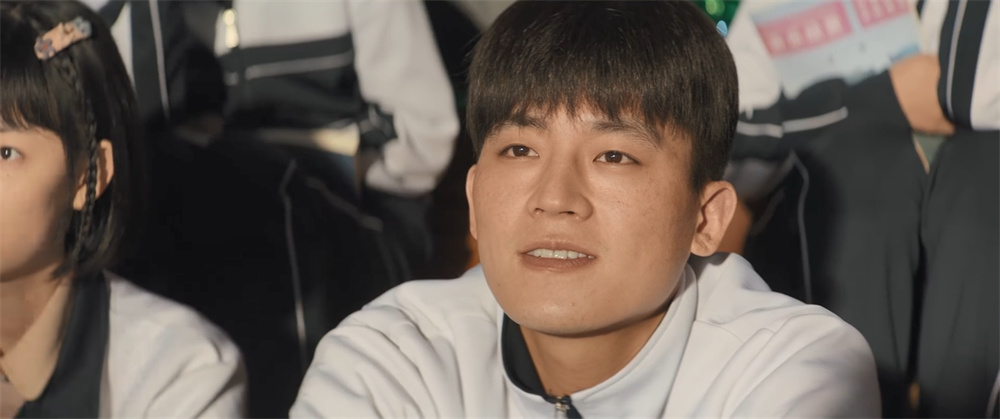
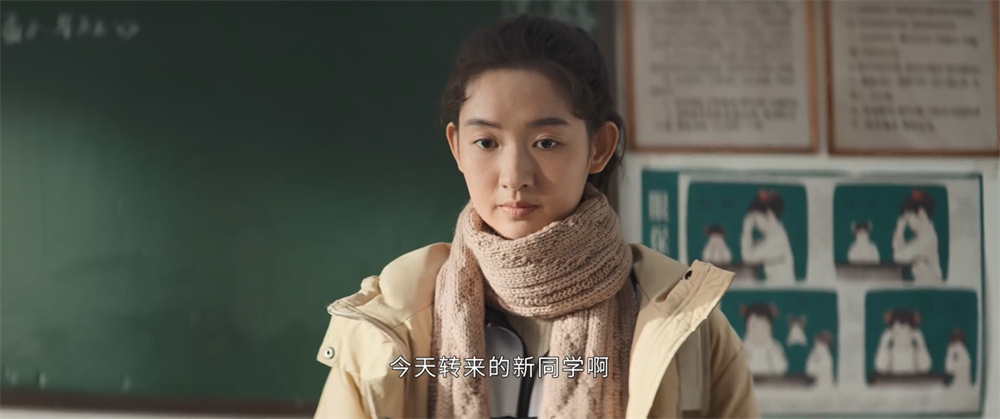
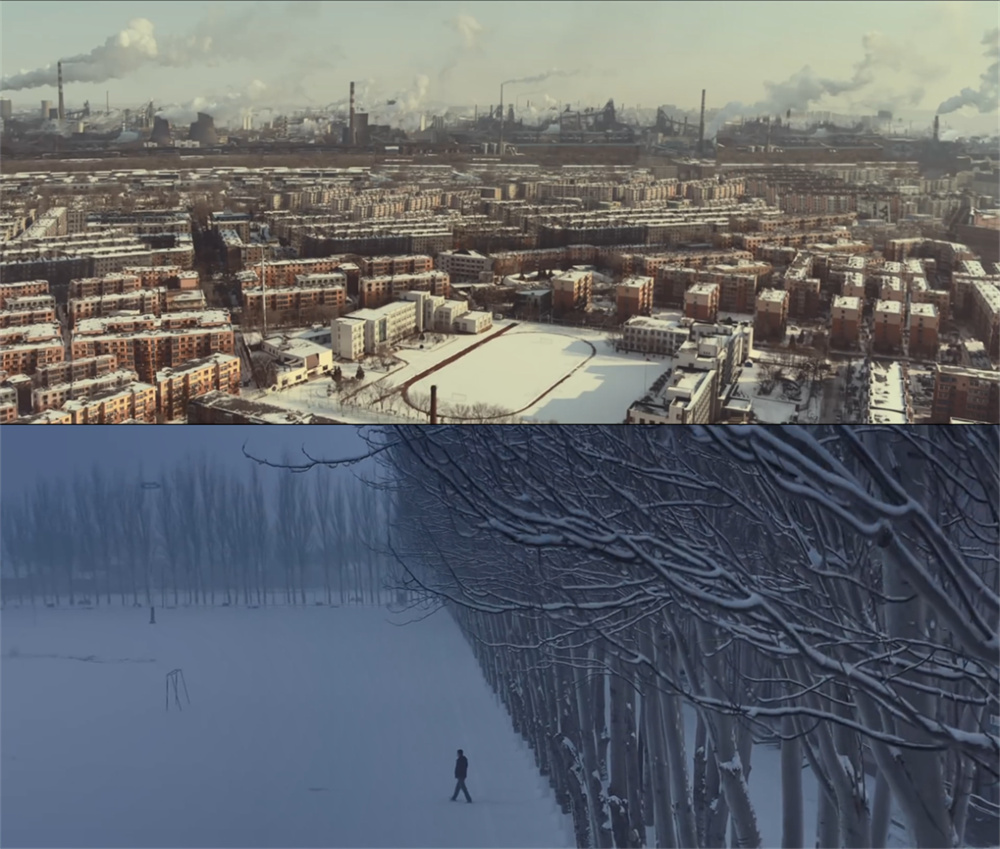
Then, the biggest remaining controversy is: the transition from novel to drama, "The Coward" seems to be somewhat "unacceptable". It is not difficult for book fans to enter the plot, and it can also be predicted that the subsequent plots are likely to be "big moves". But for the vast majority of viewers who haven't read the novel, the appeal of "The Coward" as a suspense drama may seem limited, and they may abandon the show if it can't support the exciting parts.
The screenwriter should take the primary responsibility. Zheng Zhi is a very good novelist, but not necessarily a mature screenwriter. If you judge the arrangement of the broadcasted plot of "The Coward" from a dramatic point of view, it may face some doubts: it is too slow to enter the main line, the suspense points are not clear, and the dramatic conflict is weak. This is not to say that "The Coward" is a "bad drama". On the contrary, as the "big tricks" in the subsequent plots are revealed one after another, it will be well completed as a complete work; it is just that it can be more popular and more popular. , but to the obscure and niche. This is a pity, and a place where Coward deserves to be discussed as a sample.
Closer to home, why do you say that "The Coward" can do better in the arrangement of the plot?
The previous article has already "spoiled" the novel. The core conflict of this story is: Huang Shu was killed. It leads to two core suspense: who killed Huang Shu? How did Qin Li get revenge for Huang Shu?
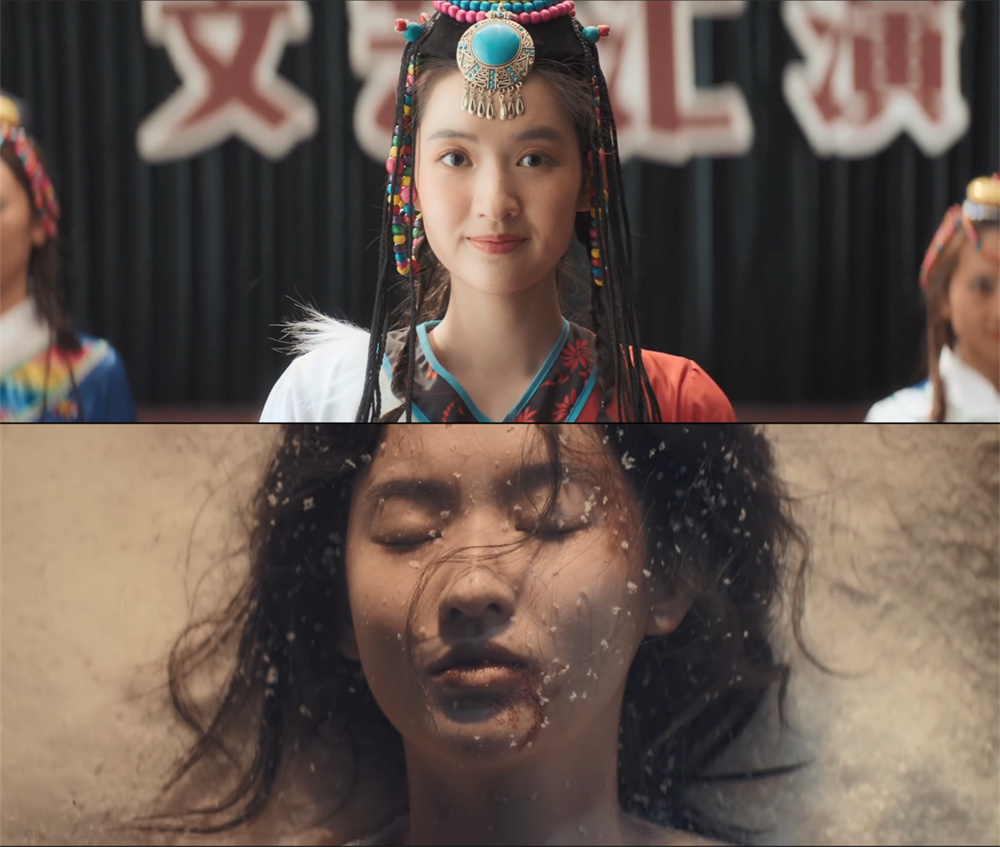
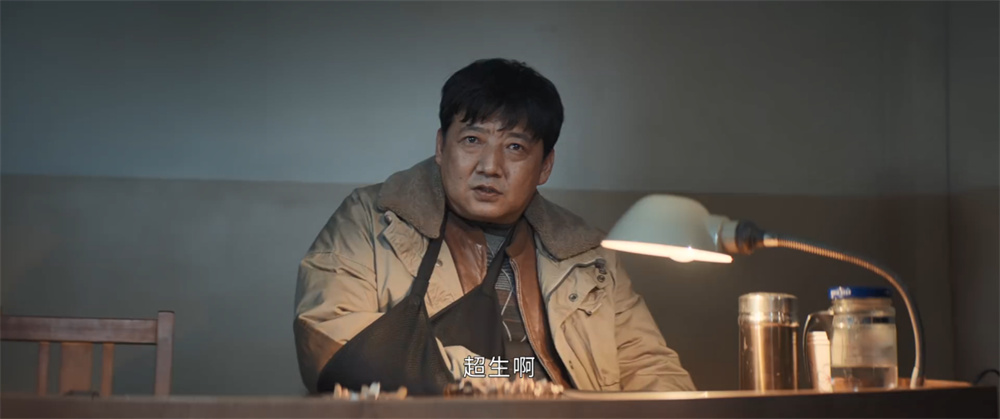
"The Coward" not only retains the two-line narrative of the novel, but also presents a three-line narrative, with repeated switching in several major time periods such as 1999-2000, 2001, and 2011. Because of the high amount of information in the novel, the reader's reading time is very concentrated, and the narrative can have more tricks and gameplay, so the reader will not feel obscure; but for the drama, the amount of information in the picture is given, and the audience is very It is difficult for the brain to fill in the information outside the picture, the plot is often easy to appear isolated and single, and too many time clues can easily make the audience feel confused.
Zheng Zhi obviously brought the novel's thinking into the script, and the multi-line narrative effect of "The Coward" is not ideal. For example, shortly after the beginning of the chapter, Wang Di took Qin Li home on a bicycle. They listened to a cassette of the song "Coward" together, a music montage, and switched from December 1999 to December 2011. At this time, Qin Li Li works in an auto repair shop. He wears hearing aids and goes to the market to buy bullfrogs, which he feeds the snakes. Fans can easily get the foreshadowing of the screenwriter; but to an audience who is completely unfamiliar with the story, this multi-line narrative is inexplicable and creates obstacles to understanding: why did it suddenly jump here, what are the characters doing?
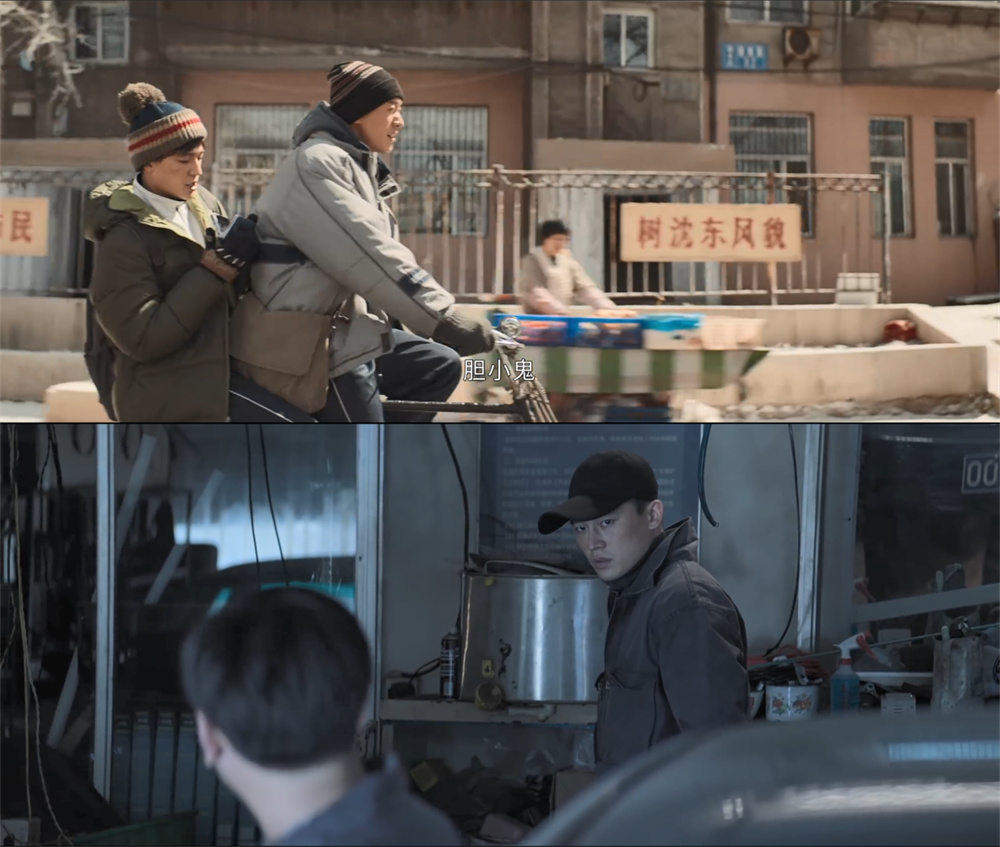
"The Coward" is not without suspense. The writer's creative idea is a bit like "throwing a puzzle", constantly throwing out some scattered pieces, hoping that the audience will slowly spell out its complete appearance in the follow-up and reveal the amazing truth. But puzzle players know that all the puzzles have been completed, and then it breaks up the pieces for players to put together again, and experience the sense of accomplishment when they are done. "The Coward" throws a lot of pieces, but unfortunately the audience doesn't know what the complete puzzle looks like. No matter how many pieces they hold in their hands, they can't start. The more pieces the screenwriter throws, the more confused they are. inside.
After 4 episodes, the audience finally knew: Huang Shu was killed. However, the dramatic tension is still slightly weak, and the plot still switches back and forth between 1999-2000, 2001, and 2011. In the novel, due to the change of narrative viewpoint, narrative tone and protagonist, the two lines form a clear distinction, like a "polyphony". The drama loses this charm, it is a bit like a pure narrative game, it is complicated and complicated, and it fails to effectively re-refine and integrate the three lines. The frequent time switching seems to be full of skills, but in fact it is more like "lazy", This means that the screenwriter shirks the responsibility of simplifying the complex.
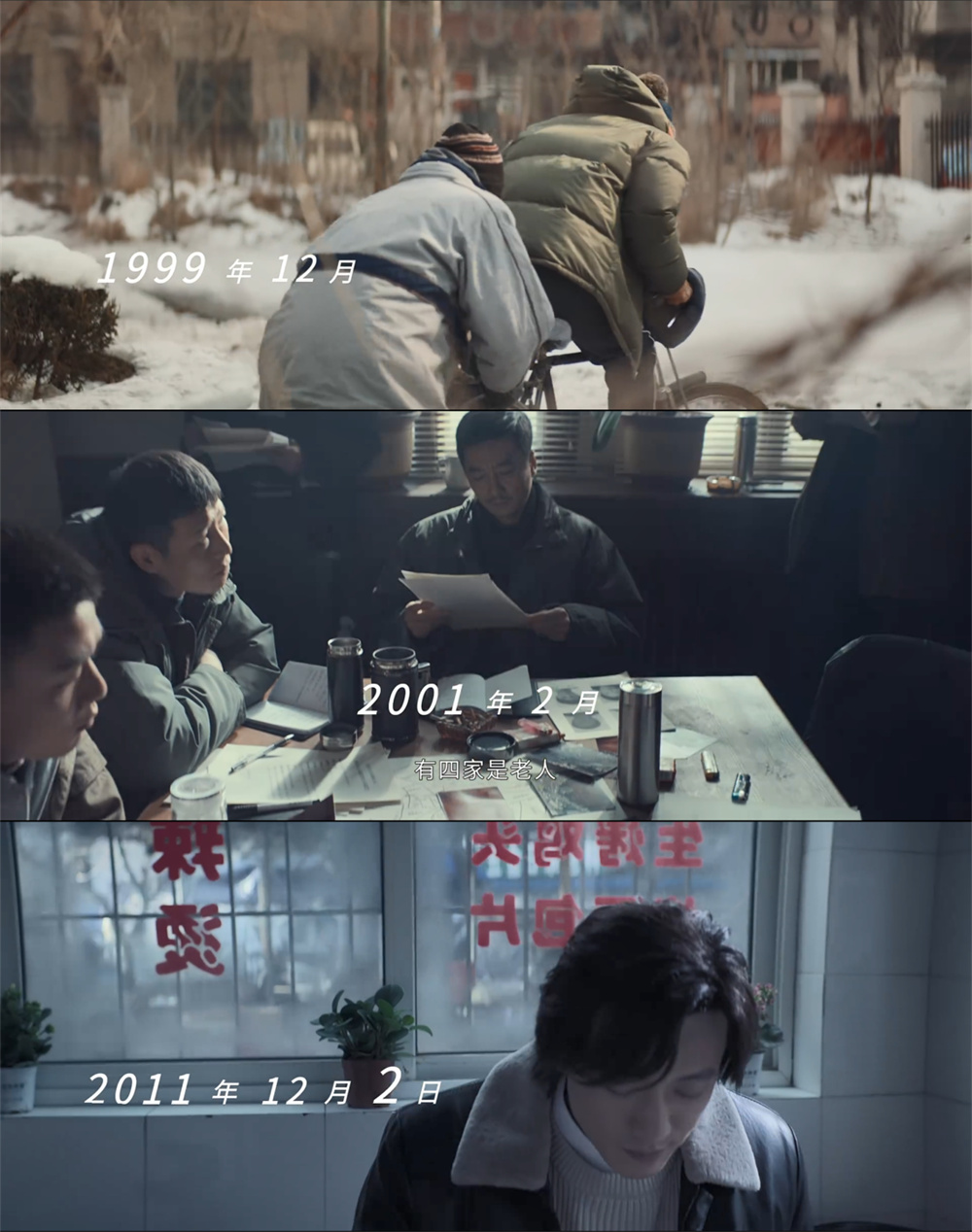
Thanks to the shock of the novel "Swallowing Raw" itself, with good team control, "The Coward" is still worth watching. It's just that how many non-book fans will stick to the end, judging from the negative comments in the Douban short comment area, it may not be so optimistic. From "Swallowing" to "The Coward", it once again reminds a common sense: although novels and movies have a high affinity, they are two completely different media after all. Novels are the art of language, and movies are the art of images. , In the process of adaptation, for the consideration of fluency, visibility, popularization, commercialization, etc., the original work will inevitably be adjusted so as to more follow the laws of images. Otherwise, if you directly transfer the techniques of the novel to the film and television, you may encounter the embarrassment of the southern orange and the northern orange.
Zheng Zhi said in the interview, "This is a drama that needs to find an audience. Once the audience who likes this drama gets used to this narrative style, they will be immersed in it." "The Coward" certainly finds an audience that loves it. But the price is that it may lose another part of the audience.

"The Coward"
In addition to their high literary qualities, there is another crucial reason for the popularity of the "Three Masters of the Northeast Renaissance". The "loser narrative" in their novels is rooted in the background of the times (the "Laid-off Tide" in Northeast China). , hits the mood of the era we live in right now. These post-80s writers experienced the splendor and glory of the Northeast Heavy Industry Base when they were children. When they were young, they witnessed the tragic wave of layoffs and the sudden decline of their fathers. They watched, witnessed and experienced the process from glory to decline. In order to understand their indelible traumatic experience, they repeatedly described the decay, depression, sorrow and depression in their works. In an era of transition, such sentiments can always be easily captured by readers.Zheng Zhi's "Swallowing Raw" in 2017 is also a "loser narrative". The novel adopts a two-line narrative, one unfolds from the point of view of police officer Feng Guojin (played by Wang Yanhui in the drama version), who investigates a "rape and murder case in a ghost house" that happened ten years ago. The girl who was killed is the heroine of the novel, Huang Shu ( The drama version is played by Wang Yuwen); the other is a youth narrative from bright to cruel, with "I" - Wang Di (played by Hou Wenyuan in the drama version) in the first person, recalling the high school days, "I", Qin Li (played by the drama version). How did the beautiful friendship of several people, played by Ou Hao (played by Ou Hao), Huang Shu and Feng Xuejiao (played by Zhou still in the play version), go to disillusionment.

Four wonderful young men finally fall apart
This dramatic title has already foreshadowed everything: what it is about to tell is how two beautiful and brave young people, Qin Li and Huang Shu, were "devoured alive" in that era of oppression and despair.
Qin Li in high school (played by Ou Hao)

Huang Shu in high school (played by Wang Yuwen)
At that time, some people called it "the Chinese version of "White Night Walk". There are indeed too many rotten novels in the country that are "rubbing" and "Walking in the White Night". Although Zheng Zhi's "Swallowing Raw" is somewhat similar in terms of character relationships, the novel has its own characteristics and maintains a high literary quality. Therefore, the news of the adaptation of the novel came out, and everyone's expectations were still quite high. What's more, it's produced by Ningmeng Pictures, directed by Zhang Xiaobo, and written by Zheng Zhi himself, which gives a very stable feeling overall. The fact is, the production quality of the play is good, and it can restore the bleak and cold characteristics of the times.
cool texture
However, judging from the plot of the broadcast, "The Coward" faces much more controversy than the novel. Whether the casting is suitable or not, we will briefly talk about this. It is really easy to turn into a battle between fans and blacks. It can only be said that in terms of performance, a few young actors are not too brilliant, and they are not too slow.Then, the biggest remaining controversy is: the transition from novel to drama, "The Coward" seems to be somewhat "unacceptable". It is not difficult for book fans to enter the plot, and it can also be predicted that the subsequent plots are likely to be "big moves". But for the vast majority of viewers who haven't read the novel, the appeal of "The Coward" as a suspense drama may seem limited, and they may abandon the show if it can't support the exciting parts.
The screenwriter should take the primary responsibility. Zheng Zhi is a very good novelist, but not necessarily a mature screenwriter. If you judge the arrangement of the broadcasted plot of "The Coward" from a dramatic point of view, it may face some doubts: it is too slow to enter the main line, the suspense points are not clear, and the dramatic conflict is weak. This is not to say that "The Coward" is a "bad drama". On the contrary, as the "big tricks" in the subsequent plots are revealed one after another, it will be well completed as a complete work; it is just that it can be more popular and more popular. , but to the obscure and niche. This is a pity, and a place where Coward deserves to be discussed as a sample.
Closer to home, why do you say that "The Coward" can do better in the arrangement of the plot?
The previous article has already "spoiled" the novel. The core conflict of this story is: Huang Shu was killed. It leads to two core suspense: who killed Huang Shu? How did Qin Li get revenge for Huang Shu?

Huang Shu was killed
If "The Coward" is not just for book fans, it is necessary to throw out a strong dramatic conflict and core suspense at the beginning, to hang the audience's appetite in the shortest possible time, so that the audience can roughly understand the outline of the story , know what it is probably talking about. This is also how the novel is handled. As soon as the murder happened, we knew that Huang Shu was dead.
The policeman Feng Guojin (played by Wang Yanhui) who runs through the story
But "The Coward" didn't know until the end of episode 4: Oh, it turned out that Huang Shu was killed. If you have never read the novel, the audience will probably misunderstand that the protagonist of the first 4 episodes of "The Coward" is Qin Li's father Qin Dazhi (played by Liu Jun). As soon as it came up, it was indeed a fatal case. It was Qin Dazhi who robbed and murdered together with others. In 4 episodes, it fully presents how the police found Qin Dazhi through investigation, what kind of cat-and-mouse game the police played with Qin Dazhi, Qin Dazhi's feelings for Qin Li, and Qin Dazhi left a letter to Qin Li before he was executed. ,and many more. Going round and round has not entered the main line for a long time."The Coward" not only retains the two-line narrative of the novel, but also presents a three-line narrative, with repeated switching in several major time periods such as 1999-2000, 2001, and 2011. Because of the high amount of information in the novel, the reader's reading time is very concentrated, and the narrative can have more tricks and gameplay, so the reader will not feel obscure; but for the drama, the amount of information in the picture is given, and the audience is very It is difficult for the brain to fill in the information outside the picture, the plot is often easy to appear isolated and single, and too many time clues can easily make the audience feel confused.
Zheng Zhi obviously brought the novel's thinking into the script, and the multi-line narrative effect of "The Coward" is not ideal. For example, shortly after the beginning of the chapter, Wang Di took Qin Li home on a bicycle. They listened to a cassette of the song "Coward" together, a music montage, and switched from December 1999 to December 2011. At this time, Qin Li Li works in an auto repair shop. He wears hearing aids and goes to the market to buy bullfrogs, which he feeds the snakes. Fans can easily get the foreshadowing of the screenwriter; but to an audience who is completely unfamiliar with the story, this multi-line narrative is inexplicable and creates obstacles to understanding: why did it suddenly jump here, what are the characters doing?

Different eras are separated by different tones
In addition to Qin Li, Feng Xuejiao and Wang Di also met by chance in 2011, and they had a bed scene and had an ambiguous conversation about Qin Li. The plot then jumps back to 1999 to continue their high school life. After a few episodes, I jumped back to 2011. An online name called Wanli Wuyun left a message to Qin Li, wanting to get back what belonged to him and asking for a place to meet, so Qin Li took some tools to tie people out. . Who is this cloudless person? Who is Qin Li tied up?"The Coward" is not without suspense. The writer's creative idea is a bit like "throwing a puzzle", constantly throwing out some scattered pieces, hoping that the audience will slowly spell out its complete appearance in the follow-up and reveal the amazing truth. But puzzle players know that all the puzzles have been completed, and then it breaks up the pieces for players to put together again, and experience the sense of accomplishment when they are done. "The Coward" throws a lot of pieces, but unfortunately the audience doesn't know what the complete puzzle looks like. No matter how many pieces they hold in their hands, they can't start. The more pieces the screenwriter throws, the more confused they are. inside.
After 4 episodes, the audience finally knew: Huang Shu was killed. However, the dramatic tension is still slightly weak, and the plot still switches back and forth between 1999-2000, 2001, and 2011. In the novel, due to the change of narrative viewpoint, narrative tone and protagonist, the two lines form a clear distinction, like a "polyphony". The drama loses this charm, it is a bit like a pure narrative game, it is complicated and complicated, and it fails to effectively re-refine and integrate the three lines. The frequent time switching seems to be full of skills, but in fact it is more like "lazy", This means that the screenwriter shirks the responsibility of simplifying the complex.

At present, almost every episode is constantly switching between three timelines
Therefore, after 7 episodes in the first week, the plot of "The Coward" still seems to be fragmented, and the suspense has not even been completed. On the one hand, Feng Guojin's investigation did not advance substantially; on the other hand, Qin Li and others were still living in high school from 1999 to 2000 (there are too many plots to be deleted), while Qin Li in 2011 was mysterious , his motives for revenge for Huang Shu are not even too clear. When a suspenseful short drama has been aired halfway, some viewers still don't know what the intention of the protagonist is. This is too much a test of patience, and it is also a "dereliction of duty" by the screenwriter.Thanks to the shock of the novel "Swallowing Raw" itself, with good team control, "The Coward" is still worth watching. It's just that how many non-book fans will stick to the end, judging from the negative comments in the Douban short comment area, it may not be so optimistic. From "Swallowing" to "The Coward", it once again reminds a common sense: although novels and movies have a high affinity, they are two completely different media after all. Novels are the art of language, and movies are the art of images. , In the process of adaptation, for the consideration of fluency, visibility, popularization, commercialization, etc., the original work will inevitably be adjusted so as to more follow the laws of images. Otherwise, if you directly transfer the techniques of the novel to the film and television, you may encounter the embarrassment of the southern orange and the northern orange.
Zheng Zhi said in the interview, "This is a drama that needs to find an audience. Once the audience who likes this drama gets used to this narrative style, they will be immersed in it." "The Coward" certainly finds an audience that loves it. But the price is that it may lose another part of the audience.
Related Posts